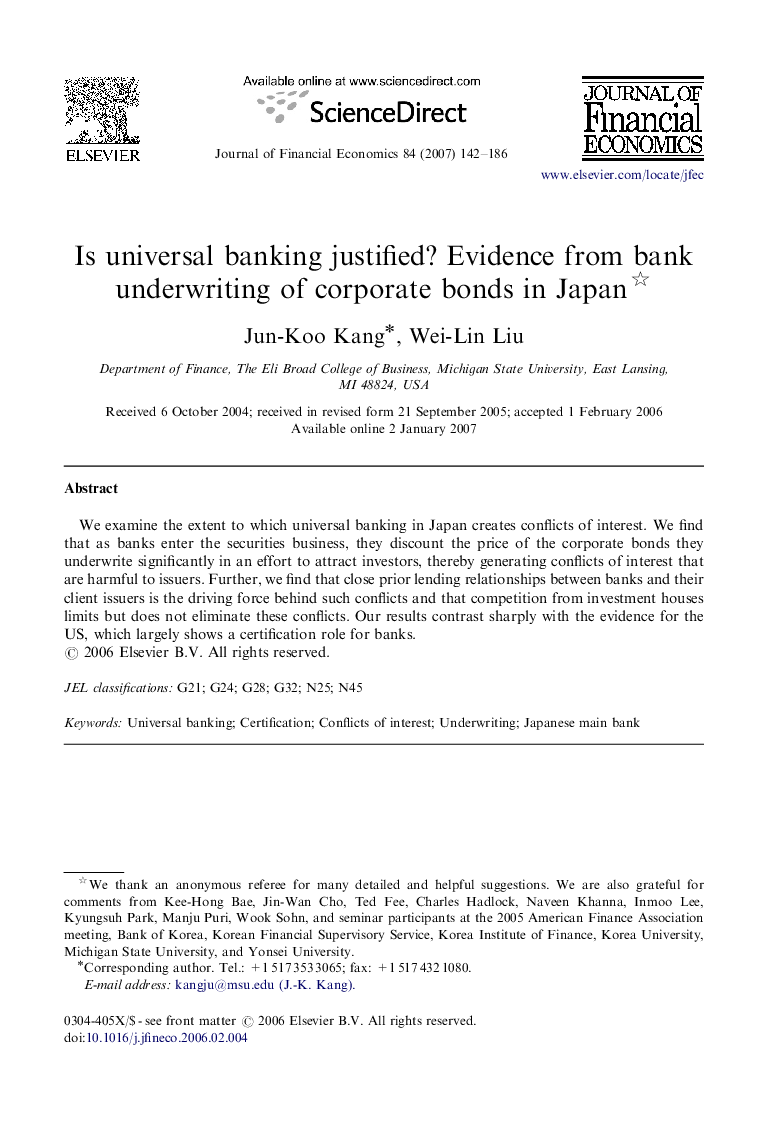| Article ID | Journal | Published Year | Pages | File Type |
|---|---|---|---|---|
| 960549 | Journal of Financial Economics | 2007 | 45 Pages |
Abstract
We examine the extent to which universal banking in Japan creates conflicts of interest. We find that as banks enter the securities business, they discount the price of the corporate bonds they underwrite significantly in an effort to attract investors, thereby generating conflicts of interest that are harmful to issuers. Further, we find that close prior lending relationships between banks and their client issuers is the driving force behind such conflicts and that competition from investment houses limits but does not eliminate these conflicts. Our results contrast sharply with the evidence for the US, which largely shows a certification role for banks.
Related Topics
Social Sciences and Humanities
Business, Management and Accounting
Accounting
Authors
Jun-Koo Kang, Wei-Lin Liu,
